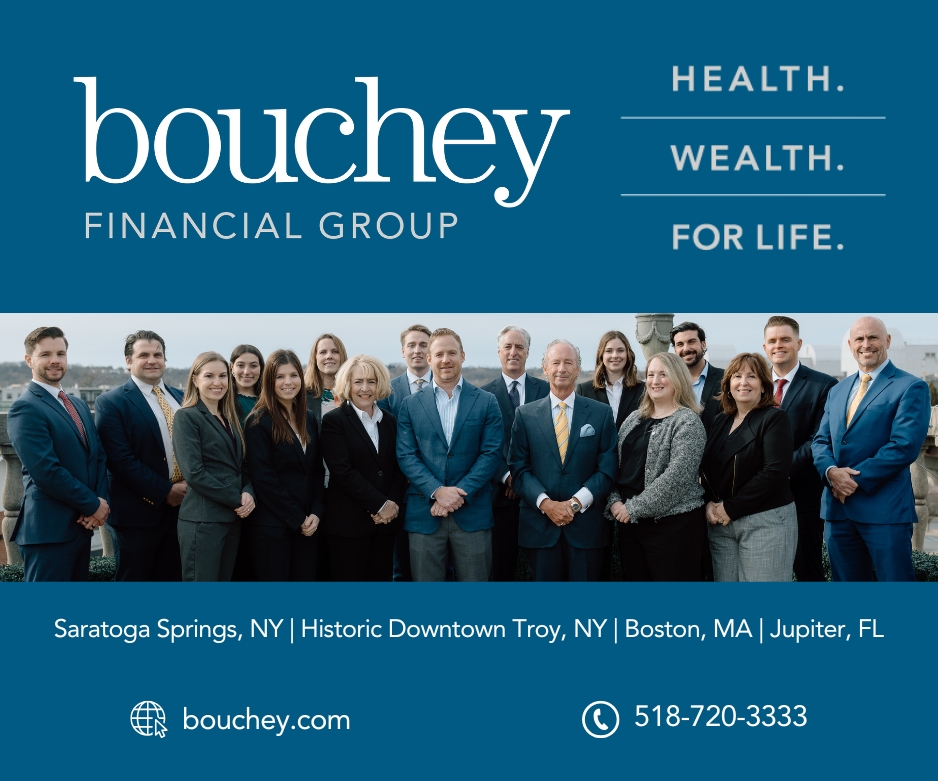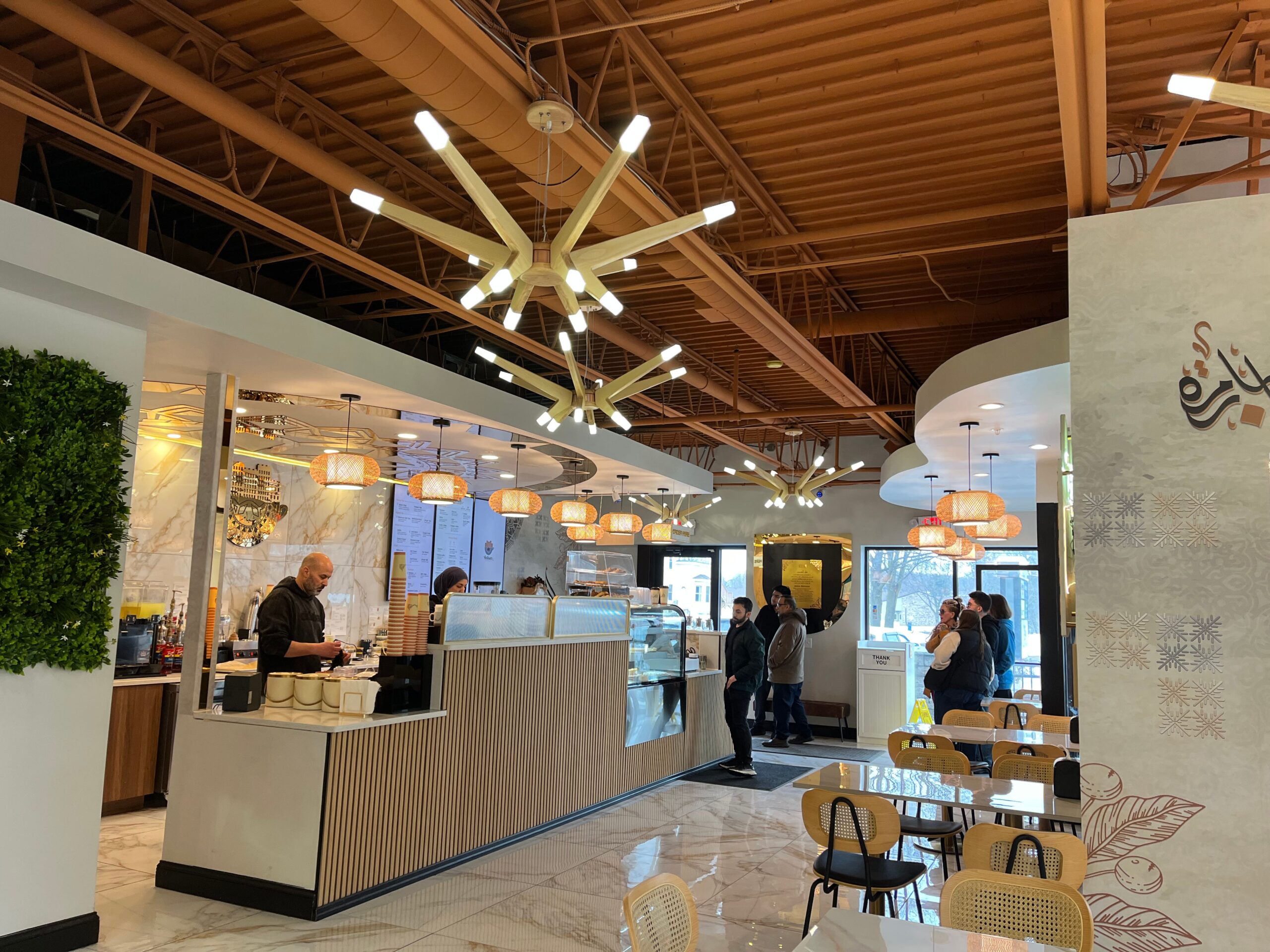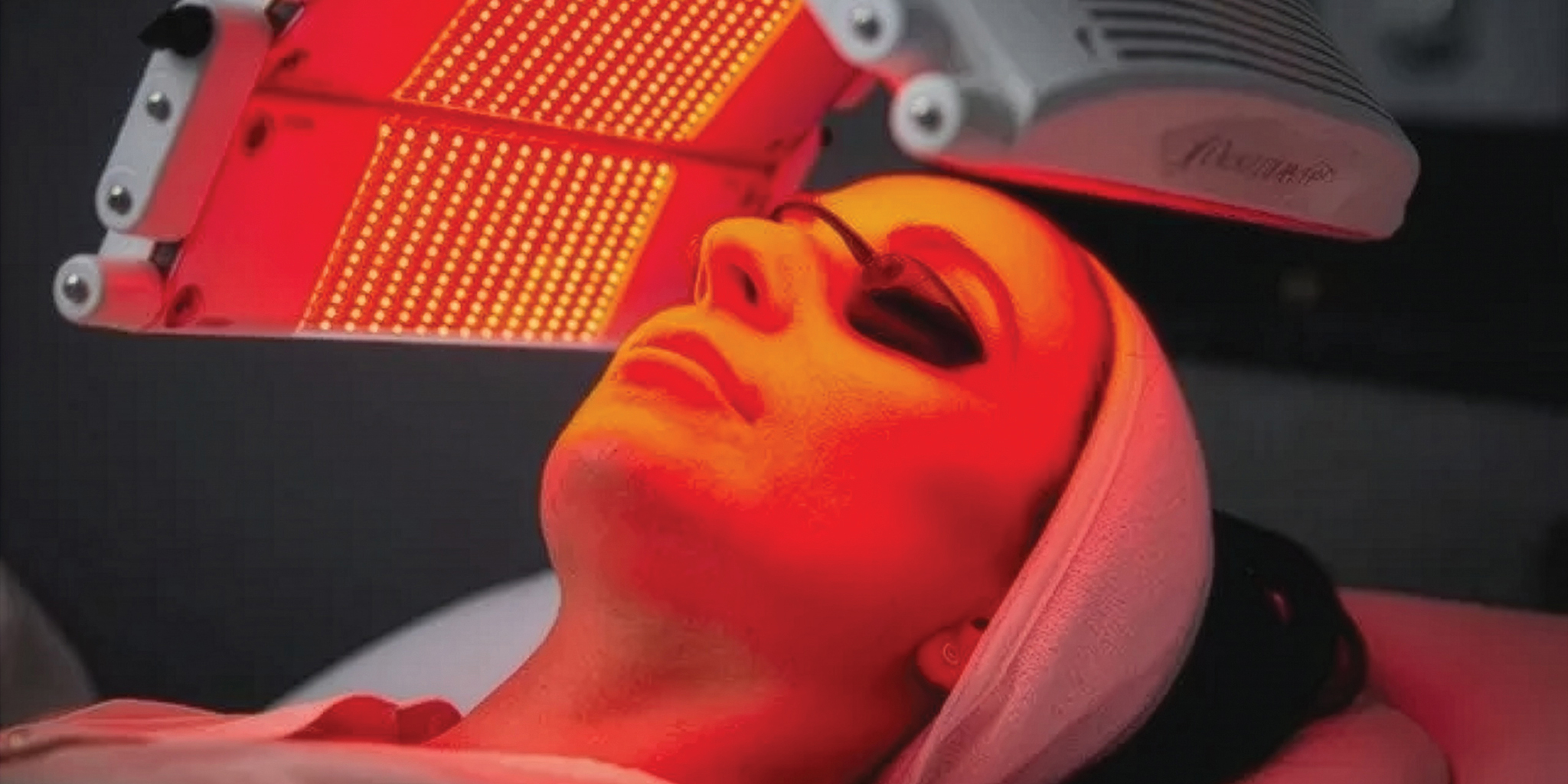For the first time in our magazine’s 17-year history, Capital Region Living is honoring the five people in the local nonprofit and charity orbit that we feel are at the apex of the giving game. (Five others are being honored on the Saratoga Living side to make it an even 10.) There’s no doubt that if there ever was a perfect time to honor the region’s top givers, it would be right now, at the end of this year, when there was so much need.
These five individuals couldn’t be giving at a more crucial moment in time. The pandemic has tried and failed to send them off course; they’ve forged ahead, working longer hours to break new ground and keep their respective organizations afloat.
We’re hoping that, besides reading their wonderful stories within the pages of this magazine, you will feel equally compelled to support them in their causes. A great place to start? At our hybrid virtual-live Capital Region Gives Back event, which takes place on December 10.
Who are these five supreme do-gooders? Allow us to introduce you to our 2020 Capital Region Gives Back honorees.
***
Kristen Garzone, Ambassador, Every Mother Counts
Garzone, who is representing Every Mother Counts, runs races—including a 35-miler!—to raise funds for the organization.
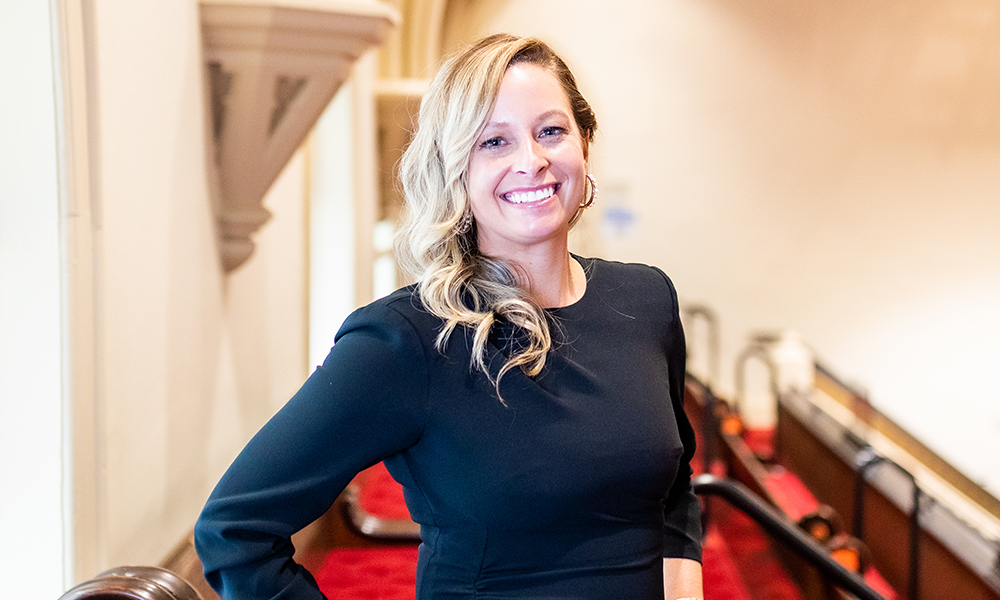
In 2016, Kristen Garzone gave birth to her daughter, Ellie, a moment that society tells us should be a pink-confetti drop and champagne toast of happiness. But she felt anything but those things. “I had a lot of anger,” says Garzone, “and I didn’t feel connected to my daughter at all.” She later learned that what she was suffering from was Postpartum Depression (PPD), a mental health affliction that affects millions of women in the US annually.
One of Garzone’s great escapes from life has always been long-distance running. In May 2017, feeling lost as a mom and at that point, still not knowing why, she took on a half-marathon to raise money for an organization she had discovered called Every Mother Counts (EMC). The nonprofit was founded by supermodel and entrepreneur Christy Turlington Burns, whose mission is to secure all mothers quality, respectful and equitable maternity care. Then, two weeks later, personal tragedy struck: One of her closest friends, who had herself been struggling with PPD, died by suicide. It was a wakeup call for Garzone. “It jolted me into realizing that not only did I have Postpartum Depression, but I had it very badly,” she says. She sought out help—while also ramping up her running game.
By 2018, Garzone had launched her own virtual Run to Believe to honor her friend’s memory and continue raising funds for EMC. Her work for and with the nonprofit has only expanded, especially impactful this year when lockdown was a crushing blow to those battling depression of any kind. She’s now an EMC ambassador and had the chance, pre-pandemic, to go on a retreat with fellow ambassadors, meet Turlington Burns and present her story. “It’s nice,” she says, “to be able to talk to people, one on one, and share my story to help others.”
Rachel Hye Youn Rupright, Executive Vice President of the Board of Directors, Capital Roots
Rupright, who will next year become the chairwoman of the board of directors, is helping connect locals with fresh food and green spaces.
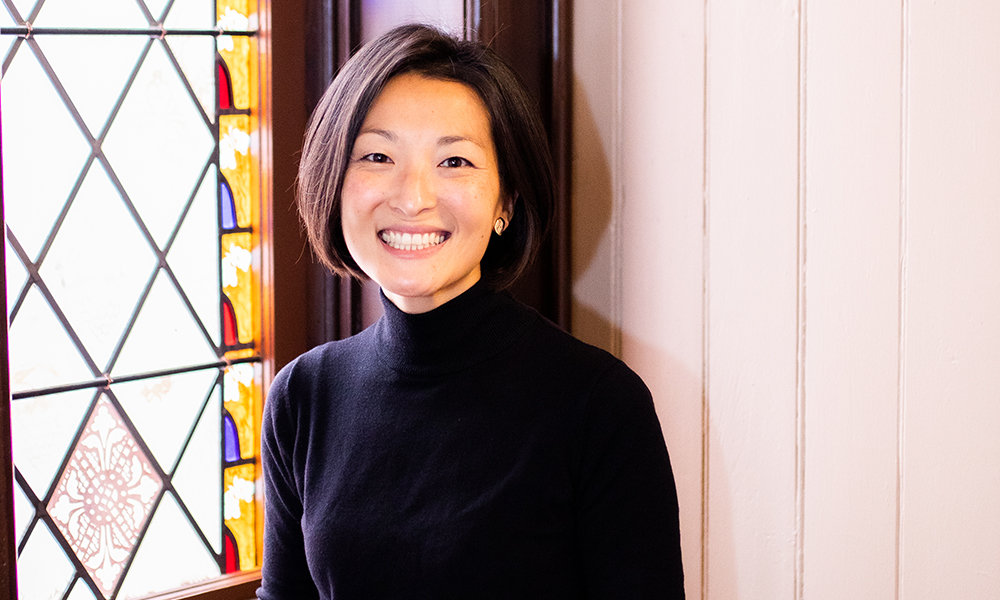
You could say that it was Rachel Hye Youn Rupright’s green thumb that led her to Troy-based nonprofit Capital Roots six years ago. “I started out as a community gardener,” she says. “We had a plot for several years in Albany.” That, and her sense of civic duty: She had also been working for an anti-hunger nonprofit, and when her personal and professional interests collided, boom! Rupright is now currently the executive vice president of the board of directors and will be assuming the role of chairwoman in January.
So, what exactly does Capital Roots do? “It’s all about connecting people and communities with fresh food and green spaces,” says Rupright. The organization focuses on outreach, whether that be delivering fresh produce to underserved areas via its Veggie Mobile or literally having doctors write patients suffering from chronic health issues fillable “vegetable prescriptions.” That work has helped build stronger, healthier communities. Rupright says that Capital Roots’ food deliverers, who have been “essential” for the duration of COVID, have even been able to deliver PPE to residents in need.
While the pandemic has certainly presented challenges to Capital Roots, the organization’s built-in outdoorsy-ness has also allowed it to thrive. “We still have the Produce Project, which is our youth-powered farm for high school students,” says Rupright. (It’s a year-round program.) And Capital Roots is even in the process of expanding its Urban Growth Center in Troy, having purchased the land adjacent to it. Add in a $25,000 donation from Saratoga’s philanthropic power couple, Ed and Lisa Mitzen, this past fall, and Capital Roots has a lot of room to grow.
Patti Veitch, Member of the Board of Directors, Gateway House
of Peace
Veitch, who has a been with Gateway House for seven years, works tirelessly behind the scenes for the end-of-life care organization.
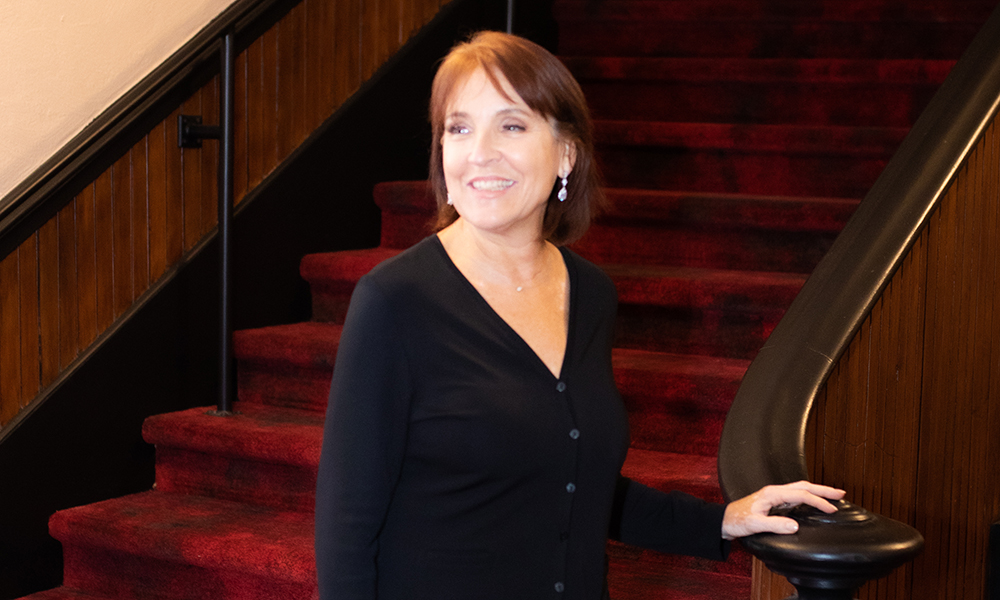
For Patti Veitch, her work on the board of directors at Gateway House of Peace begins and ends with family. She first heard about it while caring for her own elderly parents. “After my father and mother had passed, I thought, now I’m going to contact them and hear all about it,” she says. Veitch has been with Gateway House for seven years now.
For the uninitiated, Gateway House of Peace runs a quaint, two-story residential-style home in Ballston Spa, which hosts up to two terminally ill patients (that number has been scaled back to one because of the pandemic) already under hospice care, providing them with all of the creature comforts one might require in the final months of his or her life. Residents are usually older but sometimes arrive heart-wrenchingly young. That was the case when 35-year-old Lisa Emery, who had been stricken with a rare form of cancer, arrived there in 2016. Emery, it turned out, was a big fan of ’90s sitcom Friends, and by sheer coincidence, Veitch’s brother-in-law, Kevin Bright, had executive produced and directed episodes of the show. “I thought, maybe he would just come and meet her—it would mean a lot to her,” says Veitch. Bright jumped at the opportunity, visiting and calling Emery regularly. Bright and his wife, Claudia Wilsey Bright (Veitch’s sister), have since become major financial supporters of the organization.
While the Gateway House is certainly resident-focused, it provides support to residents’ families, too. “I really love meeting with the families and seeing the impact we have on them,” says Veitch. Some relatives of patients have been so moved by the experience that they’ve later joined the charity’s board. “There’s a lot going on in that little house,” says Veitch. Yes, there is—a lot of love.
Dominick Purnomo, Co-Founder and President of the Board of Directors, Feed Albany
Purnomo co-founded Feed Albany this past March, and the organization has already give 200,000-plus meals to people in need during the pandemic.
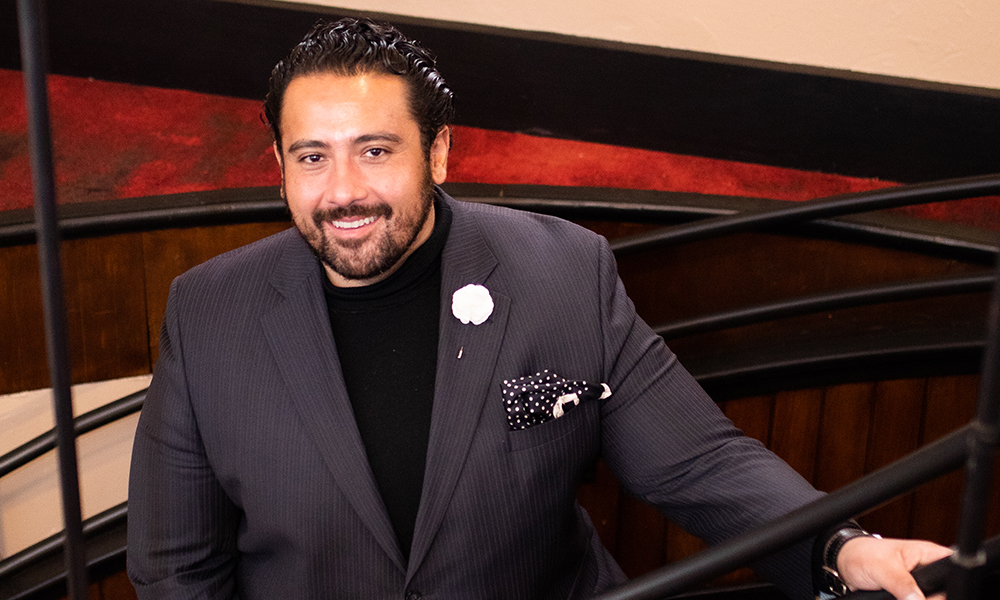
For Dominick Purnomo, wine director and co-owner of Albany restaurants Yono’s and dp An American Brasserie, cooking and delivering meals to those in need isn’t that much different than running an upscale restaurant. “It’s still hospitality,” he says. “It’s still taking care of people. Maybe we’re not doing it under a crystal chandelier, serving expensive champagne and wearing nice suits. But at the end of the day, it’s about making people feel better—feeding people’s bellies but also feeding their souls.”
This past March, Purnomo co-founded Feed Albany, at first a grassroots effort to feed those who had been adversely affected by the COVID-19 pandemic. Using kitchen space donated by area restaurants, a team of volunteers cooked, packaged and delivered food to thousands of Capital Region residents, including out-of-work restaurant employees and hospital staffers, as well as families in need. In April, Feed Albany became a registered charitable organization, and by June had handed out more than 100,000 meals. Now, with two part-time employees, the nonprofit is on track to hit 200,000 meals by the end of the year.
Now the president of the board, Purnomo is still very involved in the organization’s day-to-day operations and has been able to see, firsthand, how Feed Albany’s work has impacted the community. “I can’t tell you how many people have broken down in tears when they came to pick up meals, because they weren’t sure how they were going to feed their family that night,” he says. Likewise, Purnomo’s seen how the community—from businesses and banks to individual volunteers—has come together to take care of its most disadvantaged members. “Most of us are able to put a roof over our heads and food on our table,” he says. “But there are people who can’t, and they need help. And if we have that ability to help, we’re gonna do it.”
Denise Dubois, Gala of Hope Co-Chair, American Cancer Society of the Capital Region
Dubois, who owns Complexions Spa for Beauty and Wellness, has spent years donating her business’ services to local cancer patients and survivors.
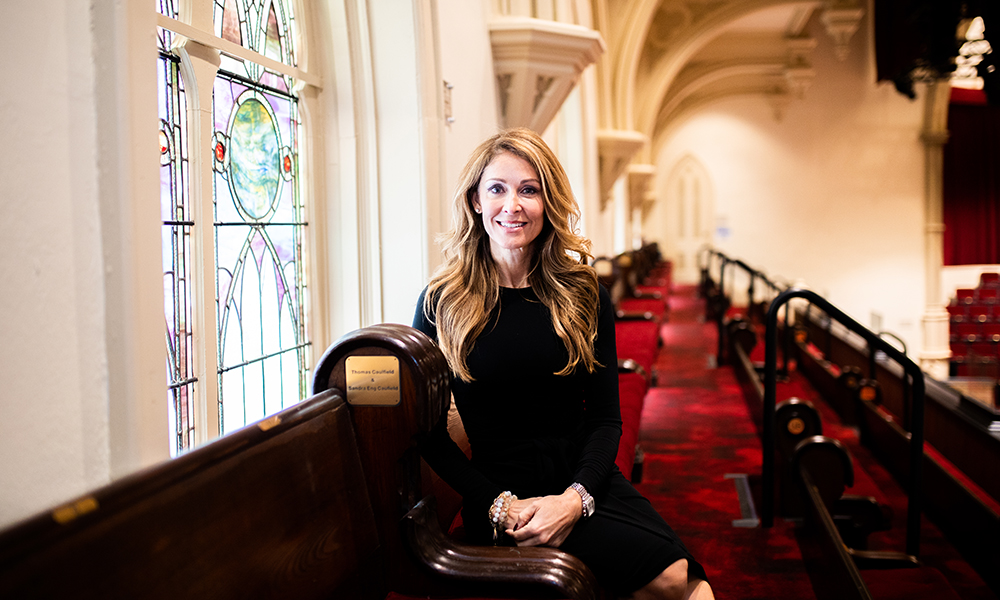
Denise Dubois has had some of her life’s most meaningful moments in the Serenity Room at the American Cancer Society (ACS) of the Capital Region’s HopeClub. The owner of Complexions Spa for Beauty and Wellness, which has locations in Albany and Saratoga Springs, sponsored the room and for seven years held biannual spa days there, where her team of beauty professionals provided complimentary evenings of 5-star pampering for Capital Region cancer patients and survivors. “We would make them feel good,” she says. “We did facials, massages, nails, all in a healthy environment. We would also do wig fitting and stencil on eyebrows,” she says of chemo patients who had lost all of their hair.
But not this year. Because of the pandemic, the HopeClub and its Serenity Room have been forced to go entirely virtual but are still supporting local patients and survivors.
Dubois has been so dedicated to the ACS that she received its Pillar of Hope award in 2014 and was tapped to serve as its Gala of Hope co-chair this year, honoring her dear friend Paul Sciocchetti, before the event was forced to go virtual. It’s cancellations of crucial events and programs like the in-person gala and HopeClub that has Dubois the most worried.
For Dubois, her work at ACS is personal. “So many people very close to me have had cancer,” she says. “My uncle battled lung cancer and lost his life. My mom was diagnosed with breast cancer and now is fine. One of my closest friends had breast cancer. Even my beloved dog had cancer at only 3 years old. We did everything we could for him–he even had chemo. Cancer really has touched so many of us in so many ways.”
Lawrence Edelson, Artistic and General Director, Opera Saratoga
With Opera Saratoga’s 2020 season canceled, Edelson has pivoted to digital, launching a number of virtual programming initiatives.
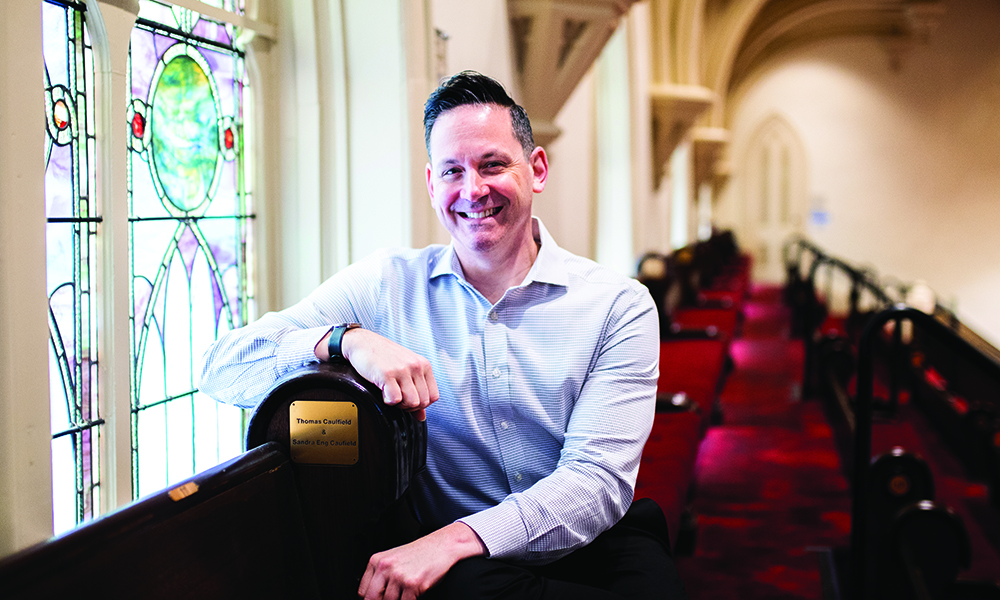
When COVID decimated Saratoga Springs’ renowned performing arts season this past summer, it was a crushing blow to the area’s economy and affected an enormous amount of people. But, the show must go on, and Lawrence Edelson, the passionate Opera Saratoga artistic and general director, was left to usher in the oh-so-classical opera to a techie new world.
“This is going to have a permanent impact on our field,” Edelson says. “Hopefully, what it’s going to do is catalyze and accelerate our thinking about technology in the arts. We have some catching up to do, because digital and virtual engagement are not our expertise; live performance is.”
As it turns out, Edelson was a quick study. In November, the opera launched America Sings, a monthly series live-streamed from Caffè Lena and featuring BIPOC performers, who have been historically under-represented in the classical arts.
In addition to the Herculean challenges involved with keeping an artistic company afloat (Edelson promises there will be a season in summer 2021!) through a pandemic, he has also worked tirelessly to preserve the opera’s vital educational programming. One addition that stands out is a new music therapy program, made possible by a partnership with Songs by Heart, that will soon use new software with low latency to allow the opera’s interactive music activities for Alzheimer’s patients to happen virtually. While Edelson looks forward to hopefully being in-person again by next spring (“There is incredible value in holding the hand of a patient”), he has high hopes for the newly rejiggered program this winter. “We’re going to be the only opera in the country that has a full-time music therapy program for Alzheimer’s patients,” Edelson says of the opera’s partnership with Songs by Heart. “This is very personal to me, because I’ve had a number of members of my family, including my father, who have had Alzheimer’s.”
Allison Meyers, Member of the Board of Directors, Saratoga Regional YMCA Association
Meyers has spent the entirety of the pandemic promoting the Y’s über-important physical and mental health programs.
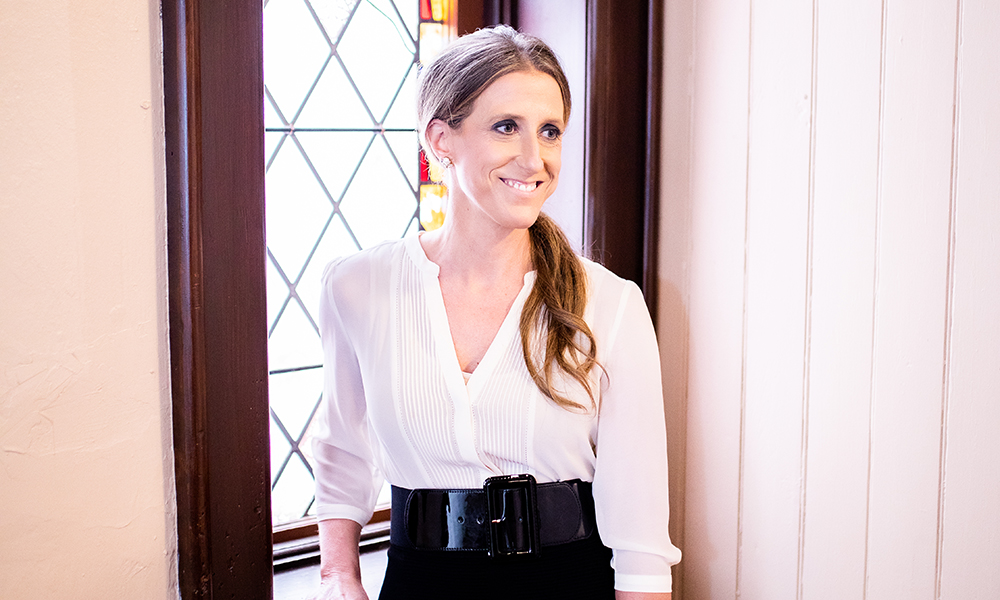
The longer we were told to stay home during the pandemic, the more concerns started to arise about what this sedentary—and often isolated—new lifestyle was doing to our physical and mental health. Locally, the Saratoga Regional YMCA swung into action, with Board Member Allison Meyers spreading the word to anyone who would listen.
“Everybody deserves good health, regardless of means,” Meyers says. “As we enter 2021, we’ll have the need for more physical activity and mental health support, which the Y provides. And we help just about everybody who asks for it.”
Seniors are a huge part of the Y’s membership, and this COVID experience has been a lesson in keeping them connected in a new virtual world. “Many of them have come to the Y daily for 30 years,” Meyers says. “When they were told to stay home, the Y staff made personal phone calls to make sure they didn’t need anything and started a daily email just for seniors, to keep them engaged and comfortable with the virtual experience. To this point, almost 10,000 seniors have participated in a virtual workout since the beginning of COVID.”
The Y also now provides assistance to children whose parents are unable to oversee their at-home learning, as well as post-lockdown nutritional guidance. Surprisingly, many people don’t even know that these programs (not to mention the Y’s bread-and-butter “swim and gym”) are free to anyone who asks for financial assistance, with the association providing more than $780,000 in assistance last year. “We now have a fraction of the membership that we had,” Meyers says. “So we’re really looking to the community to help us be able to continue to provide wellness to people during one of the greatest times in history they’ll be needing it.”
Heather Straughter, Co-Founder and President/Treasurer, Jake’s Help From Heaven
Straughter co-founded Jake’s Help From Heaven after losing her young son to a rare, debilitating disease.
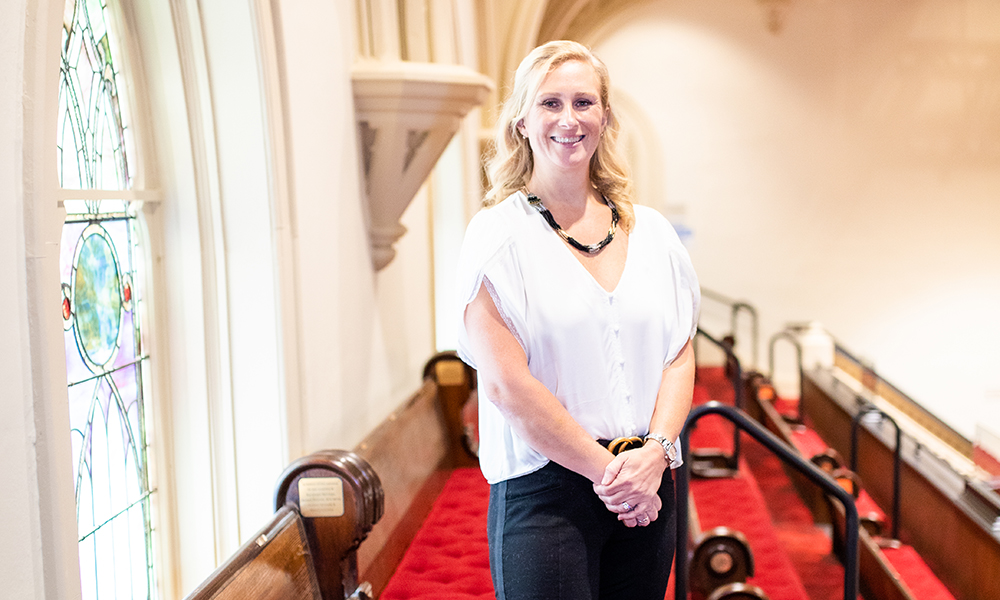
Powerhouse super-mom Heather Straughter co-founded Jake’s Help From Heaven with her husband, Brian, as a coping mechanism for the overwhelming grief she felt after their beloved son, who was fighting a rare and debilitating illness, passed away in December 2010 at the age of 4. Over the years, the nonprofit has helped more than a thousand families with children with chronic illnesses and disabilities, with Straughter often having the greatest impact simply by showing up as “Jake’s mom.”
But this year was different. “The hardest thing now with COVID is missing out on the personal connections,” Straughter says. “When someone needs an adaptive bike or chair, we order it, put together the items and personally deliver. But with COVID, we’ve had to stop the deliveries. Sometimes moms hug me and cry when they realize it’s me, Jake’s mom. Their existence is normal to me, so there’s that connection.”
Having walked in those moms’ shoes for four years, Straughter understands on the deepest level what it’s like being your child’s full-time advocate, all while balancing 24/7 caretaking duties with “normal” family life. “It was so important to us as a family to be a family,” she says about herself, Brian and Jake’s older brother by a year, Ethan. “That means having the right stroller, so that when Ethan was playing soccer, it could get in the dirt, and Jake could watch the game. At Jake’s Help From Heaven, we give normal family experiences to people.”
The organization also provides services such as transportation to treatments and help with medical costs, and increased its offerings this year. “In April, we started the COVID Emergency Fund,” Straughter says. “There’s so much going on during this pandemic—a child can’t get care, or a parent lost a job. With these kids, you have to be extra careful.”
Ramón Domínguez, President, New York Race Track Chaplaincy
of America
Racing Hall of Famer Domínguez serves as president of a New York–based organization that looks after backstretch workers.
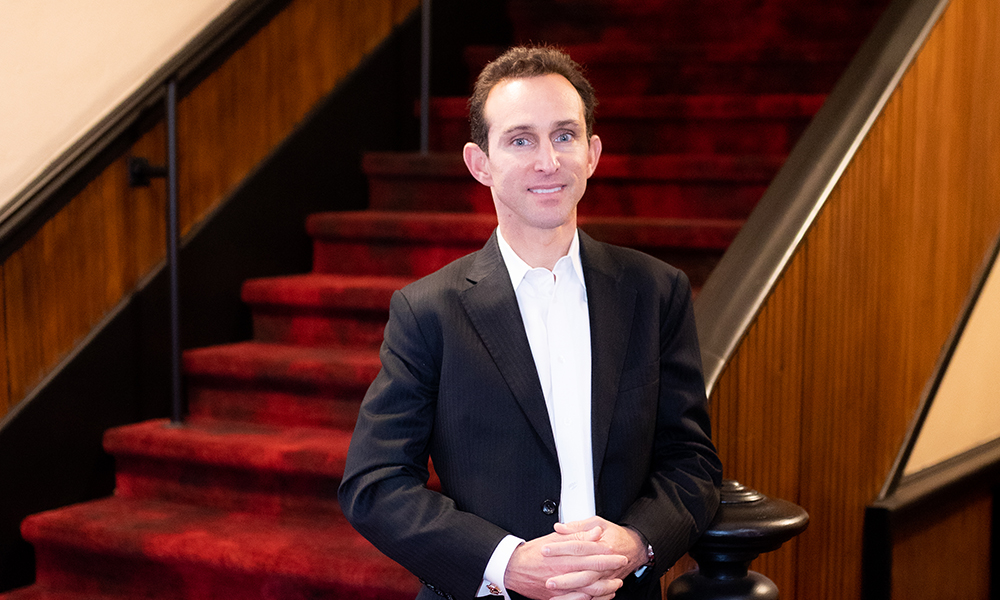
Ramón Domínguez began his association with the New York Race Track Chaplaincy of America during his Hall of Fame career as a jockey. Now, seven years after his retirement from the saddle, Domínguez has taken on the role of president of the organization. “I got involved with the Chaplaincy when I was riding and learned how important it is for the backstretch workers to have a support system like this in place,” says Domínguez. “I wanted to help any way I could. The backstretch workers are the heart of the sport and the Chaplaincy is there for them in many ways.”
Incorporated in 1972, the Race Track Chaplaincy of America is a national organization that provides backstretch workers with food and clothing banks, recreational activities, referrals for healthcare, legal and financial services, education workshops and transportation, among other programs. The New York chapter is run by a small staff led by Reverend Humberto Chavez and relies primarily on volunteers and supporters to accomplish its mission.
“Many of the people working on the backstretch are away from their families and count on the Chaplaincy for emotional support and spiritual guidance,” says Domínguez. The organization also helps workers with practical matters such as finding a doctor or showing them how to address a letter and place a stamp on it—everyday tasks that the majority of us might take for granted. “The roles the Chaplaincy fills have been even more essential this year with the pandemic and all of the stress and uncertainty it has caused,” he says. “The Chaplaincy is always there no matter what, and it’s my honor to be a part of it.”
Martel Catalano, Co-Founder and Executive Director, Beyond
My Battle
Catalano, who suffers from a rare, incurable disease, co-founded the local support group to help people just like her.
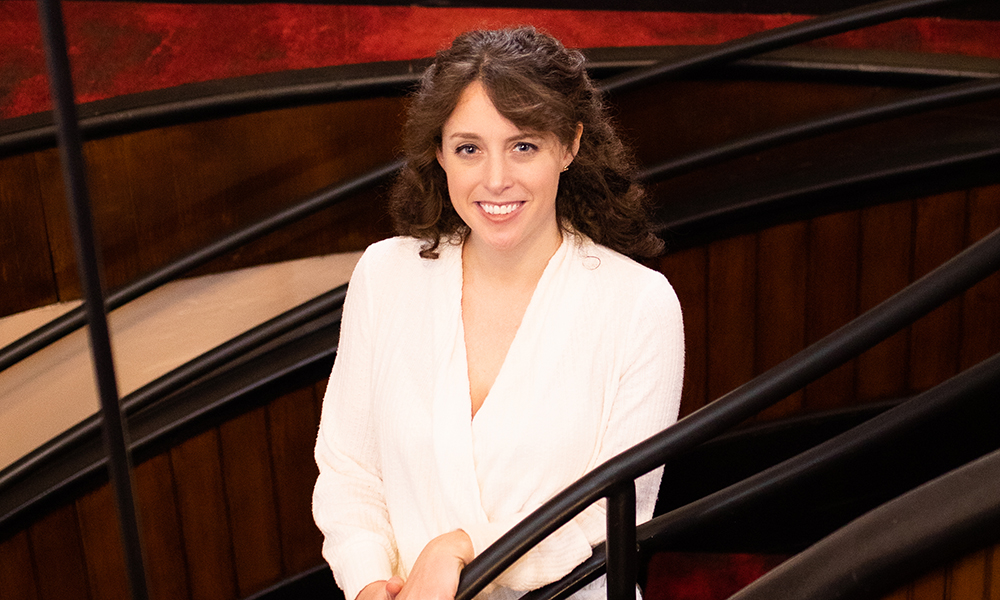
Martel Catalano and her friend Nell Pritchard, both of whom suffer from incurable diseases—Catalano from Retinitis Pigmentosa, Pritchard from Cystic Fibrosis—founded the Saratoga Springs–based nonprofit organization Beyond My Battle as a kind of support group within a support group. “No matter what condition you’re going through, there are emotional themes that are not often addressed through your rare disease group or association,” she says. These could be anything from a stress reaction to a recent Lyme Disease diagnosis, to someone feeling incapable of being loved because of his or her Fibromyalgia. That’s where Beyond My Battle (BMB) comes into play, offering a community of friendly people willing to listen and provide support, as well as a panoply of educational resources.
In just two years, BMB has had countless wins. “Through participating in a caregiver workshop,” says Catalano of one example, “a parent was able to better understand their child’s embarrassment, lack of self-worth and limitations in having a chronic illness, and improve their relationship at home. Everything that we do comes back to relationships, and how to use them to [reduce stress].”
Due to the pandemic, BMB’s support groups have gone completely virtual, but that hasn’t stopped the organization from fighting the good fight. In a first, BMB partnered with the Upstate New York chapter of the ALS Association in November, doing weekly workshops with caregivers. And as Catalano notes, going all-virtual had been in the stars all along. “Meeting people within the comfort of their own home was actually the direction we were headed anyway,” she says. “So it has worked to our advantage.”




